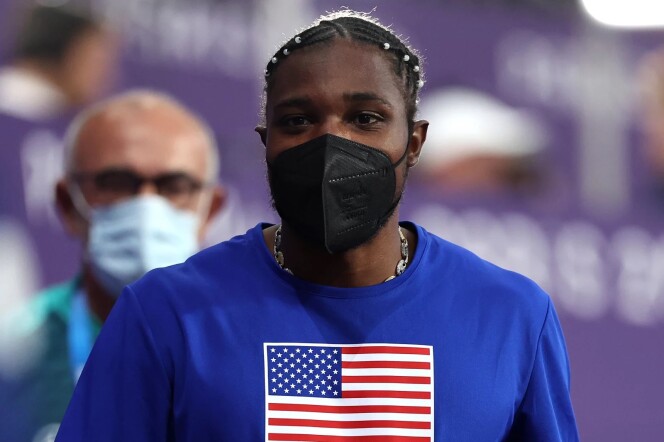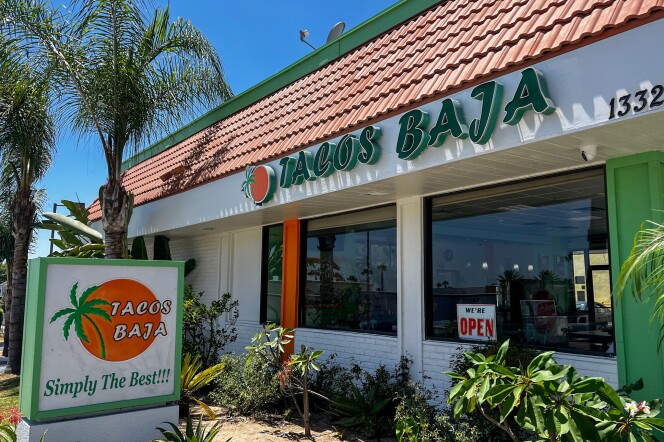This story is free to read because readers choose to support LAist. If you find value in independent local reporting, make a donation to power our newsroom today.
Newsom signs law delaying oil industry’s leak detection in communities

Gov. Gavin Newsom today signed a law that will give oil and gas companies several extra years before they begin detecting and fixing wells near homes and schools that leak into the air and water.
Companies won’t have to follow the new law's expanded requirements to monitor their oil and gas wells within 3,200 feet of California’s residential areas for leaks until July 2030 — three and a half years later than the deadline that Newsom and the Legislature set in law two years ago.
The slowdown in protecting communities near wells comes as Newsom lauds his administration’s agenda as getting tough on the oil industry and phasing out fossil fuels.
The request for the delay didn’t come from oil companies — instead, it was requested by the Newsom administration. State air and water regulators said they needed more time to hire staff, test techniques for detecting leaks and develop specific policies.
“The delay is extremely troubling and will force frontline communities to wait longer for much-needed pollution protections,” said Hollin Kretzmann, an attorney at the group’s Climate Law Institute. “We’re celebrating the landmark achievements (that other) bills represent, but we won’t rest until all Californians get the future free from oil and gas pollution that they deserve.”
More than 2.5 million Californians — including many in Long Beach, Los Angeles and Kern County — live within 3,200 feet of an oil or gas well, predominantly in low-income communities of color. Oil wells can leak dangerous contaminants into the air and groundwater, and research has linked an array of health effects, including a higher incidence of premature and low birthweight babies, to people’s proximity to wells.
In August, the Newsom administration floated a plan to extend the law’s various deadlines, including for leak detection, by more than four years because state officials needed more time to implement them. Environmentalists supported a two-year delay.
In the end, the Legislature settled on three and a half years, setting a new deadline of July 2029 for companies to submit leak detection and response plans and July 2030 for implementing them. Originally companies were supposed to detect and fix leaks by January 2027. The Assembly passed the bill in a 58 to 17 vote; the Senate voted 30 to 9.
“After thorough deliberation and negotiations, I am pleased to see a consensus reached on the implementation of this vital law to protect California families from the dangers of oil drilling pollution,” State Sen. Lena A. Gonzalez, a Long Beach Democrat who authored the original law, said in an emailed statement at the time.
Oil company executives say the law will eliminate jobs, drive up gasoline prices and increase California’s dependence on imported oil. Complying will cost them about $40 million over the first two years, the industry estimates.
The industry had sought to eliminate the two-year-old law entirely through a ballot measure, but decided in June to abandon that effort.
Rock Zierman, chief executive officer of the California Independent Petroleum Association, said the delays make sense because the ballot proposition process paused implementation, so a new starting point is necessary. He said a main focus of the law, prohibiting new wells or work on existing wells within the buffer zone, remains in place.
Under three other laws signed by Newsom last week, California will accelerate cleanup of the state’s idle oil wells, shut down one low-producing oilfield in Los Angeles County and allow cities and counties to restrict oil drilling.
Newsom also called the Legislature into a special session to address gas prices, giving him more time to persuade lawmakers to act on a package of energy bills he failed to jam through in the final weeks of the regular session.
-
Four years after SARS-CoV2 sparked a devastating global pandemic, U.S. health officials now consider COVID-19 an endemic disease.
-
The repayment demands, detailed in Orange County letters obtained by LAist, come as officials found that the nonprofit Viet America Society failed to show that meals to seniors were handed out as required under a county contract. Supervisor Andrew Do did not respond to requests for comment.
-
It's fighting talk, but LAist associate food editor Gab Chabrán says his hometown's combo of newcomers making waves and old timers making faves hits the spot.
-
The iconic Skid Row building went from the true crime spotlight to homeless housing. But some residents wonder if they were better off before moving in.
-
In a city that's exploding with excellent bakeries, deciding where to go for that croissant or cupcake can be a challenge. You told us your fave raves
-
The project’s three proposed routes would extend the K line from Expo/Crenshaw up through Hollywood.












